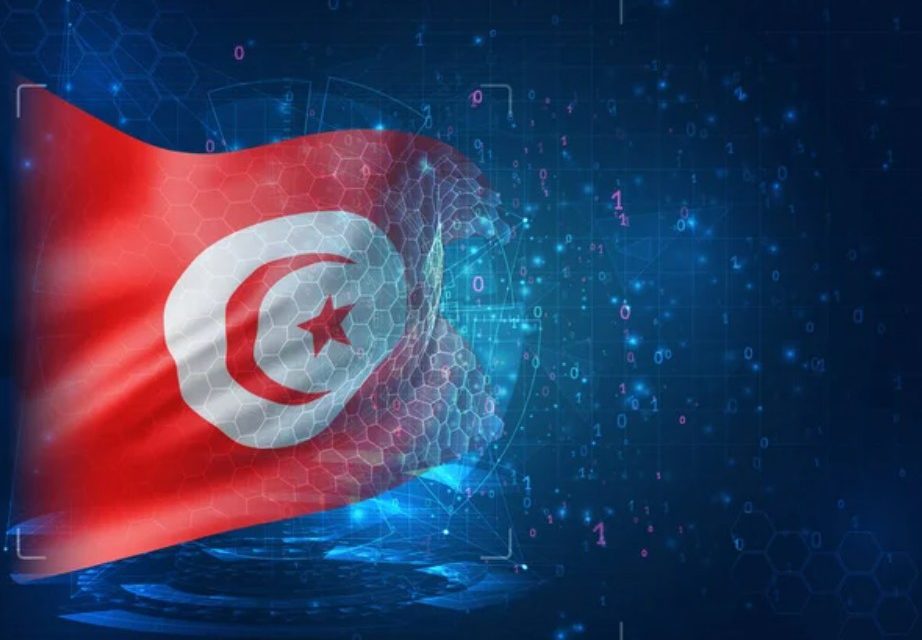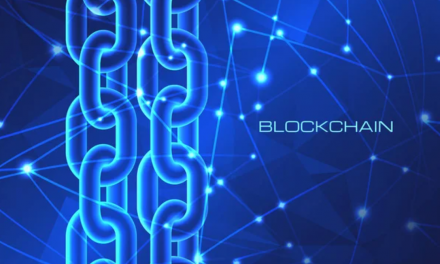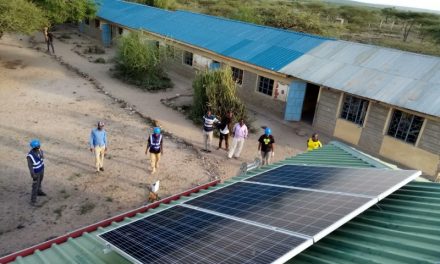At the Tunisian Ministry of Higher Education’s newly launched digital verification hub, the hum of servers mingled with the determined clicks of engineers finalizing what could become one of Africa’s most transformative public sector reforms. On sleek monitors, streams of data transformed into cryptographic hashes—each representing a student’s diploma, now immortalized on a blockchain. This wasn’t just another bureaucratic upgrade. It was a direct response to a crisis threatening the very foundation of Tunisia’s workforce: a staggering 200,000 public sector employees suspected of using fraudulent credentials.
The rollout of Tunisia’s blockchain-based diploma verification system, part of the Unified Arab System for Diploma Authenticity Verification (UASDAV), marks a pivotal moment in the global fight against education fraud. But to understand its significance, we must peel back the layers of a problem decades in the making—and explore how distributed ledger technology is offering solutions where traditional methods failed catastrophically.
A Crisis of Credibility: The Fraud Epidemic
Tunisia’s struggle with academic fraud isn’t new, but its scale became undeniable in 2023. A damning report by the Tunisian Association for the Fight Against Corruption revealed that between 2011 and 2023, an estimated 15% of government employees—roughly equivalent to the entire population of the city of Sousse—had likely used falsified degrees to secure jobs. The consequences ripple across sectors: unqualified teachers in classrooms, under-skilled engineers overseeing infrastructure, and healthcare workers lacking proper training.
“This isn’t just about paperwork,” says Amira Chennoufi, a Tunis-based sociologist who has studied the phenomenon. “When a third of your public sector workforce might lack the credentials they claim, it erodes trust in every institution. It’s a cancer on national development.”
Traditional anti-fraud measures—manual verification, centralized databases—proved woefully inadequate. Diploma forgery became a sophisticated cottage industry, with counterfeit documents often indistinguishable from genuine ones. Verification processes could take months, relying on overwhelmed administrators to cross-reference paper records.
Blockchain as Digital Notary: The UASDAV Breakthrough
Enter UASDAV, a collaborative effort between Tunisia’s Ministry of Higher Education and the Arab League Educational, Cultural, and Scientific Organization (ALECSO). At its core, the system treats each diploma as a unique digital asset. When a student graduates, their institution generates a blockchain record containing:
- A cryptographic hash of the diploma’s contents
- Timestamped issuance data
- Digital signatures from authorized university officials
- A tamper-evident link to previous blocks in the chain
“Imagine it as a digital notary that never sleeps,” explains Karim Bessrour, lead architect of Tunisia’s implementation. “Every time someone tries to verify a diploma, they’re not just checking a document—they’re auditing an unbroken chain of cryptographic proof.”
The technical nuances matter. Unlike early blockchain credentialing experiments that stored full documents on-chain (raising privacy concerns), UASDAV uses a hybrid approach. Sensitive student data remains off-chain, with only hashes and metadata immutably recorded. This balances transparency with compliance to data protection laws like the GDPR—critical for Tunisian graduates seeking work in Europe.
Implementation Challenges
Adoption hasn’t been seamless. At the University of Tunis El Manar, IT director Leila Abid walked me through the migration’s growing pains. “We’re digitizing records dating back to the 1960s,” she says, gesturing to rows of archival boxes. “Each diploma requires manual verification before blockchain entry. It’s painstaking, but necessary to avoid codifying past errors.”
Resistance has emerged from unexpected quarters. Some faculty members initially balked at the perceived loss of autonomy in credential issuance. “There was this fear that blockchain would turn us into mere data entry clerks,” admits Dr. Hatem Ben Salah, dean of the Faculty of Sciences. “But once we saw how the system actually enhances our institutional authority—by making our certifications globally trustworthy—the skepticism faded.”
From Classrooms to Boardrooms
The implications extend far beyond fraud prevention. Consider Jamila, a Tunisian software engineer now working in France. “Before blockchain verification, European employers would make me wait months while they ‘confirmed’ my degree,” she recounts. “Now? They scan a QR code on my digital diploma and get instant, irrefutable proof. It’s erasing the bureaucratic bias against African credentials.”
Economists are taking note. A 2024 World Bank projection suggests that reducing public sector fraud through systems like UASDAV could save Tunisia up to $300 million annually—funds that could flow into education and healthcare. Meanwhile, Tunisian startups are exploring spin-off applications. EdTech firm LearnChain is piloting micro-credentialing for vocational training, while a Tunis-based consortium is developing blockchain solutions for medical licensure.
Privacy, Access, and the Digital Divide
No innovation comes without trade-offs. During a town hall in rural Kasserine, students expressed concerns about digital exclusion. “What if employers stop accepting paper diplomas altogether?” asked one attendee. “My village barely has internet—how do I access my ‘blockchain diploma’?”
The Ministry has responded with a blended approach. For now, blockchain records complement rather than replace physical documents. They’ve also partnered with Tunisia’s postal service to enable offline verification via regional offices. Still, as digital infrastructure remains uneven, the risk of marginalizing rural populations persists.
Privacy advocates raise another flag. While UASDAV’s current design protects personal data, future expansions—like linking academic records to employment histories—could create intrusive profiles. “We need strict governance frameworks now,” argues data ethics researcher Selma Zghidi. “Blockchain’s immutability is a double-edged sword. Once data is written, it can’t be erased—even if laws or societal norms change.”
The African Context: A Continent-Wide Experiment
Tunisia’s initiative mirrors a broader African blockchain awakening. In Ethiopia, the government is collaborating with Input Output HK (Cardano’s developer) to record 5 million student credentials on-chain. Mauritius’s National Qualifications Authority uses a similar system for vocational certifications. Nigeria, meanwhile, sees a mix of top-down and grassroots adoption, with universities like the Federal University of Technology Owerri issuing blockchain diplomas independently.
Yet challenges persist. Interoperability between different national systems remains limited. ALECSO hopes to bridge this by establishing regional standards, but technical and political hurdles abound. “We’re seeing a quiet revolution in credential sovereignty,” notes Dr. Aisha Bello, a Lagos-based education technologist. “African nations are rejecting the old paradigm where Western institutions set verification norms. Blockchain lets us define our own trust frameworks.”
AI, Automation, and the Future of Trust
As I left the Ministry’s verification hub, project lead Mohamed Dhia Hammami shared a tantalizing glimpse of what’s next. “Next phase? Integrating AI to analyze historical fraud patterns and flag high-risk verification requests. We’re also exploring zero-knowledge proofs for privacy-preserving credential sharing.”
The long-term vision extends beyond diplomas. Tunisia’s blockchain infrastructure could underpin everything from land registries to medical records—a foundational layer for broader digital transformation. But success hinges on sustained investment and political will.
Globally, the implications are profound. If a middle-income nation like Tunisia can successfully overhaul its credentialing system, it challenges the notion that blockchain is merely a tool for tech giants and financial institutions. It becomes a democratic instrument for institutional trust—one diploma at a time.
In Perspective: A New Social Contract
Tunisia’s blockchain journey is more than a technical overhaul; it’s a renegotiation of societal trust. By making academic fraud virtually impossible, the nation isn’t just cleaning up bureaucracy—it’s reinforcing the value of education itself. Students now know their hard-won degrees can’t be undermined by forgers. Employers gain confidence in hiring. Universities see their global reputations rise.
Yet the human element remains irreplaceable. As blockchain verifies what people learned, educators must still ensure they’re teaching the right things. Technology can expose fake diplomas, but cultivating authentic expertise? That still happens classroom by classroom, lecture by lecture—in Tunisia and beyond.
In the end, this isn’t just a story about stopping fraud. It’s about how societies rebuild trust in an age of digital uncertainty. And in that endeavor, Tunisia may have just written a playbook for the world.





